Category Insight: Non-Dairy Yogurt
April 19, 2018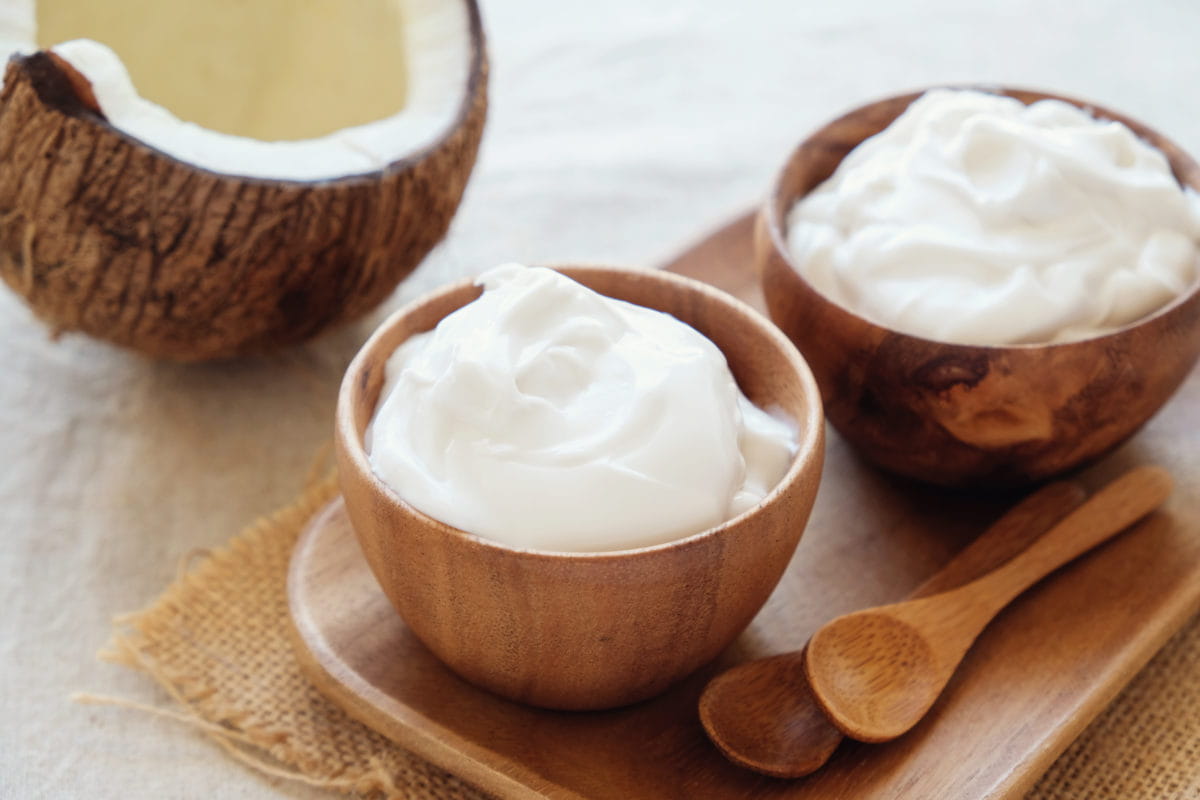
Click here for the full report!
Creators of dairy-free yogurt are experimenting and innovating. From new bases, like oat or hemp to unique flavors like mango cream or maple, dairy-free yogurt is well positioned for growth. The segment solves a clear need for consumers, as those with dairy allergies and those with ethical concerns become more vocal. Let’s look at the growing dairy-free yogurt market, ingredient and flavor innovation, and call out some interesting and innovative new products.
Market
In 2016, dairy-free spoonable yogurt introductions increased 20%, after increasing 40% in 2015. And according Food Navigator, “US retail sales of plant-based yogurts were up 56% in the year to August 12, 2017.”
Looking at milk alternatives, Forbes reports the category reached global sales of $5.8 billion in 2014 and is predicted to reach $10.9 billion by 2019, representing a 13.3% CAGR. Sales of animal milk, on the other hand, are predicted to decrease to $15.9 billion, representing an 11% drop between 2015 and 2020.
“We believe plant-based yogurts will continue to be a high-growth segment within the yogurt category,” says Michael Neuwirth of DanoneWave. He told Progressive Grocer the company’s plant-based offerings — Silk and So Delicious — grew 60% from 2015 to 2016.
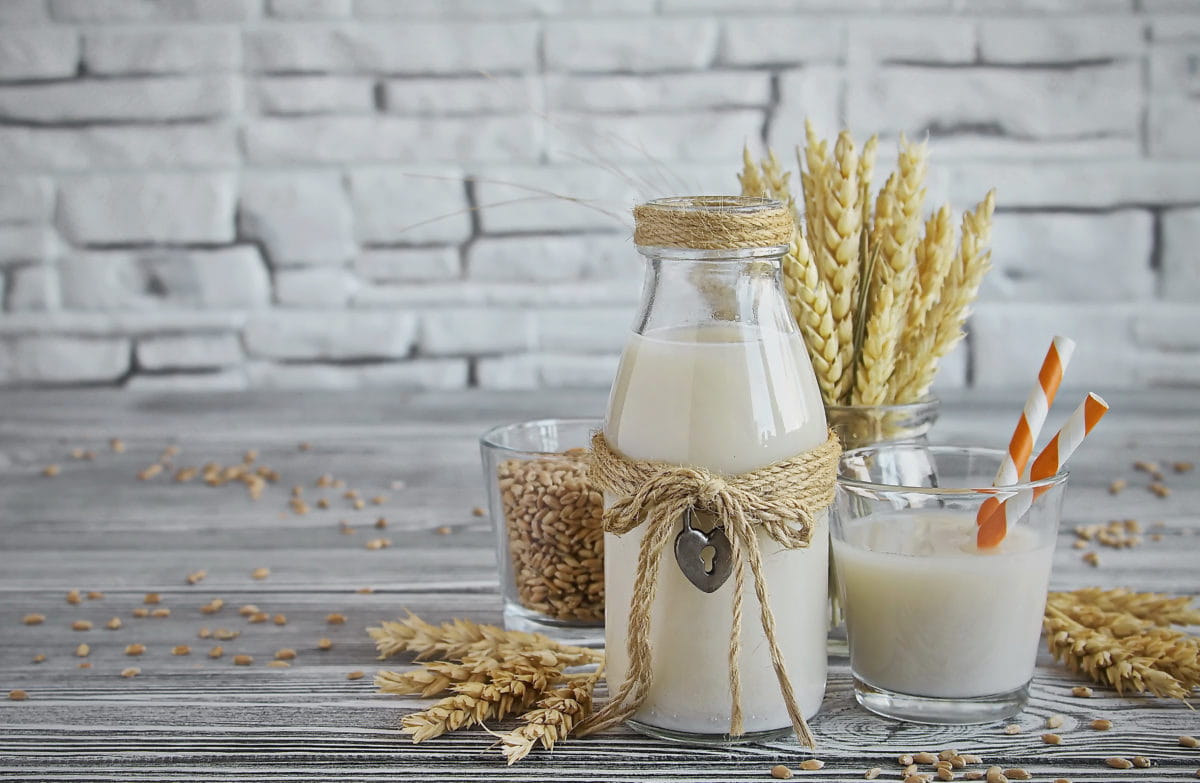
Non-Dairy Bases
35% increase in coconut milk yogurts in 2016
Spotted: Interesting Non-dairy Yogurt Base
• Oats
• Flax
• Legumes
• Hemp
• Rice
• Cashews
• Peas
Soy, almond and coconut are all common non-dairy yogurt bases. Soy used to be the most popular, with 80% of global dairy-free yogurt launches in 2011, but product developers’ creativity has changed that. Ingredients such as coconut milk, which increased in appearances by 35% in 2016, have provided consumers with new options. So what’s next? Well, Cultures for Health says nearly any non-dairy milk can be cultured, including legume, nut, seed and grain milks, and we see new products launching with bases such as oats, flax, peas and cashews. (Their website provides recipes for non-dairy milks and yogurts, such as hemp and rice milk yogurts.)
Nuts Beyond Almonds
Snack launches around the world grew 47% between 2012 and 2017 with China, U.S. and India leading the way. China and India represent markets of growth for product developers with the nations’ booming populations, rising disposable incomes, convenience-demanding lifestyles and the increase of Western influences in their daily lives.
Lavva, positioned as a “luscious plant-based yogurt crafted with zero added sugar and 50 billion probiotics,” is made with the pili nut which grows in volcanic soil. The pili nuts are rich and buttery and “whip into a creamy yogurt when blended with coconut milk.” They also contain more vitamin E than any other nut.
The pili/coconut blend is mixed with plantains, cassava and real fruit to create five flavors: Original, Pineapple, Strawberry, Raspberry, Blueberry. Lavva contains no gums, stabilizers, flavors, added sugars or high intensity sweeteners. “Our goal is to take simple whole foods and use them in creative ways,” says Lavva chief marketing officer Nicki Briggs.
Pro & Con: Real Consumers Talk about Lavva Raspberry Yogurt:
I usually cannot buy yogurt products since I am allergic to a lot of foods. Most other yogurts contain something I'm allergic to…but I'm definitely going to try this out- Female, South, 18-34
This product is expensive and costs more than I usually budget for yogurt. -Male, South, 35-54
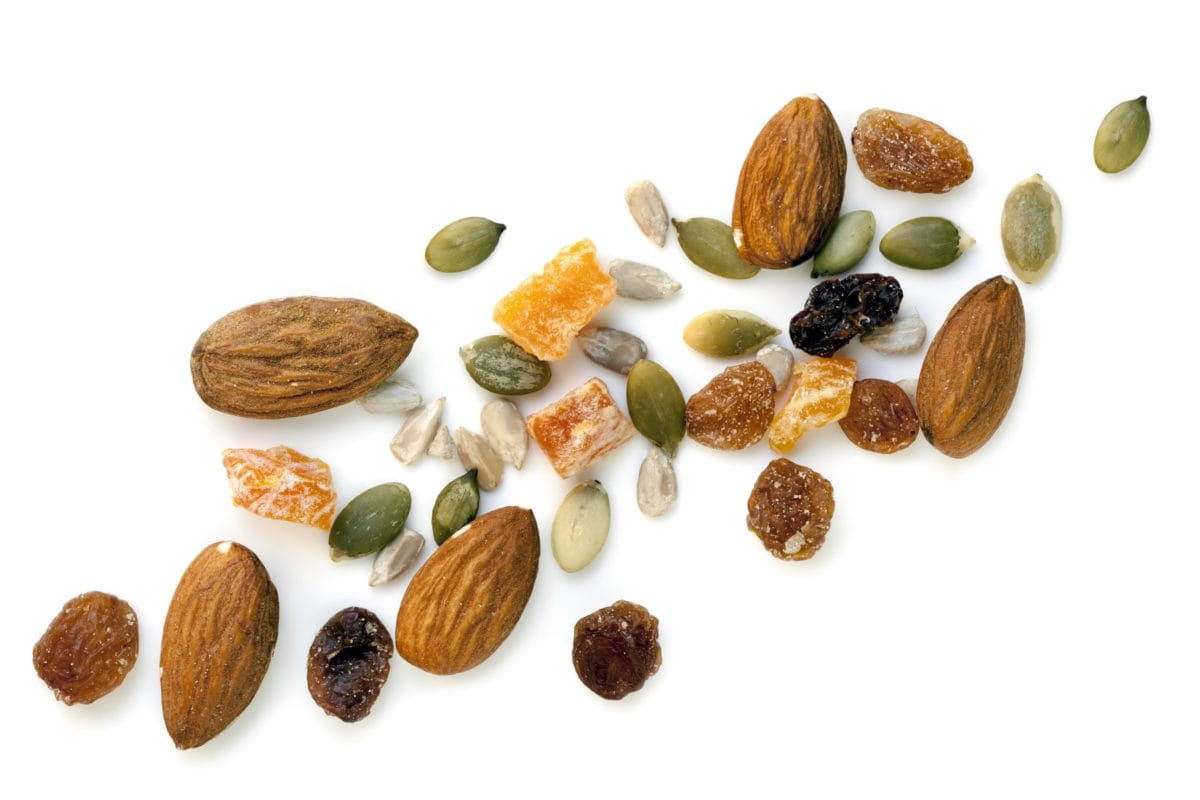
Seeds
We see recipes for sunflower, pumpkin and hemp seed milks online with directions for then culturing them into dairy-free yogurts. In retail, Good Karma Flax Milk Yogurt contains 5 grams of pea protein, 7 live and active cultures, 800mg of Omega-3s and 15g sugar. Good Karma promotes the products as “smooth and creamy,” important texture notes of dairy yogurt often missing from plant-based alternatives. Available flavors are: Plain, Blueberry, Strawberry, Raspberry, Vanilla.
Grain
Halsa Foods Oatgurt is positioned as “America’s first plant-based yogurt made from whole grain oats” and was created by two Scandinavians who moved to America and wished more US products were made with only ingredients. They call themselves the “pioneers of 100% clean label” and say it “is possible today” for all products to be made that way. “We challenge every food manufacturer in the United States to follow our example and find a way to make their products with nothing but real ingredients,” the co-founders say on their website.
Peas
Ripple co-founder Dr. Neil Renninger believes plant-based yogurts often swing and miss when it comes to texture and appearance. He says Ripple’s new line of Greek-style yogurts with pea protein deliver the superior texture consumers are looking for, along with a higher protein content (12g/serving) than other plant-based yogurts. The product’s protein content is pea-based.
“Pea protein has a lot of amazing benefits for your health. But pea protein has one big problem: it taste like peas,” co-founder Adam Lowry said in a Forbes interview.
Ripple’s “Greek Yogurt Alternative” is available in: Original, Maple, Vanilla, Strawberry, Blueberry. Original has 6g sugar, others have 14.
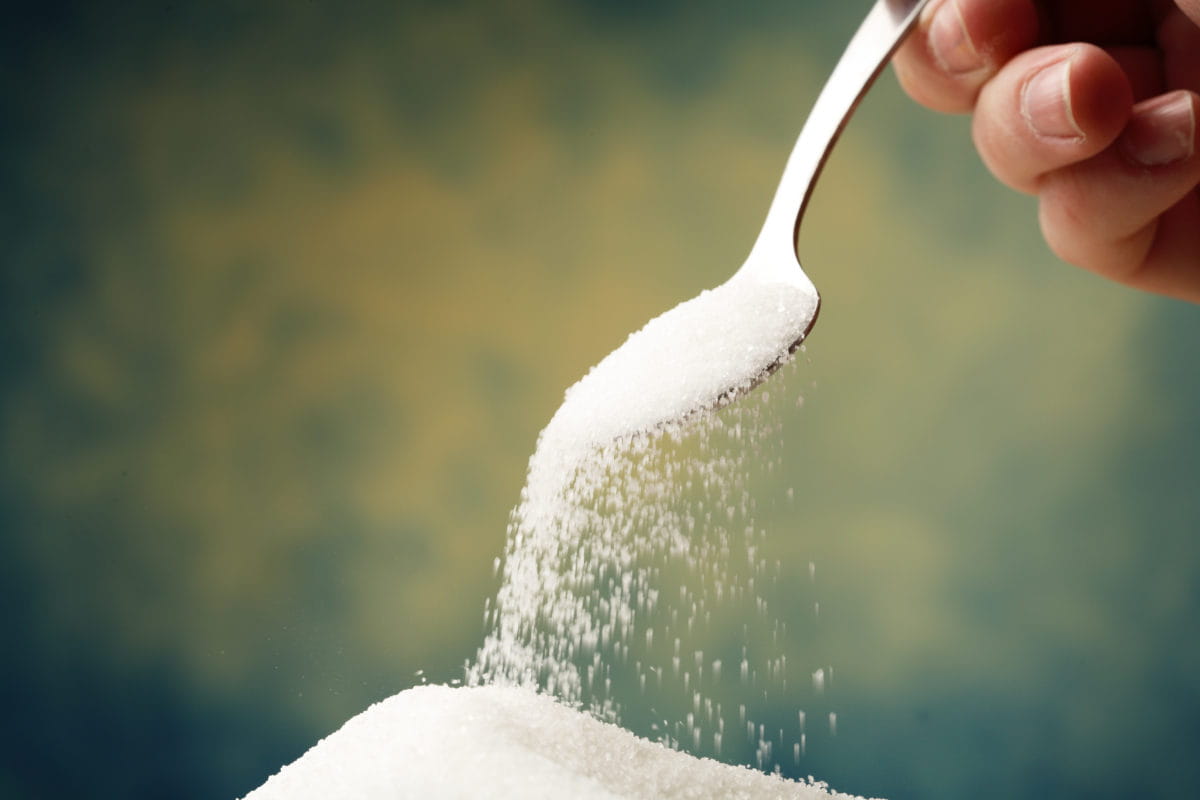
Claims
Functional claims aren’t making an impact in non-dairy yogurts. Looking at the top 10, it’s about what’s NOT in the products: allergens, gluten, dairy, animals, GMOs, lactose, etc. As for largest gain recently, Ethical - Environmentally Friendly Product grew 400% from Q4 2016 to Q4 2017.
Sugar
With the health halo surrounding plant-based products, the high sugar content of many products can be a surprise to consumers. Low/No/Reduced Sugar was only seen in 11% of US launches since 2014 and declined 100% from Q4 2016 to Q4 2017.
“The category really hasn’t cleaned up at all (with regards to sugar reduction),” says Jody Polishchunk, creator of Yooga, a plant-based yogurt launching early this summer.
Yooga is a plant-based yogurt scheduled to hit shelves in summer 2018. Creator Jody Polishchunk describes the product's 6 grams of sugar as “drastically less” than competitors. Made with coconut milk, fruit purees, ground chia seeds and probiotic cultures, Yooga looks to fill the gap for consumers looking for dairy-free yogurts with low sugar and a nutritional kick. Flavors will be Strawberry, Blueberry, Turmeric Golden Milk, Vanilla Bean, Sea Salt Chocolate.
Lavva brand non-dairy yogurt is also taking on the sugar challenge. Lavva products contain no added sugars, and marketing efforts promote “zero added sugar” as a main selling point. All 5 varieties contain 7 grams of sugar.
Top 10 Claims (% of total)
Ethical - Environmentally Friendly Product grew 400% from Q4 2016 to Q4 2017.
Non Dairy Yogurts, US Jan. 2014-Feb. 2018
• Low/No/Reduced Allergen 98%
• Gluten Free 89%
• Dairy Free 80%
• No Animal Ingredients 70%
• Vegan 70%
• Kosher 57%
• GMO Free 56%
• Organic 37%
• Low/No/Reduced Lactose 35%
• Ethical - Environmentally Friendly Package 32%
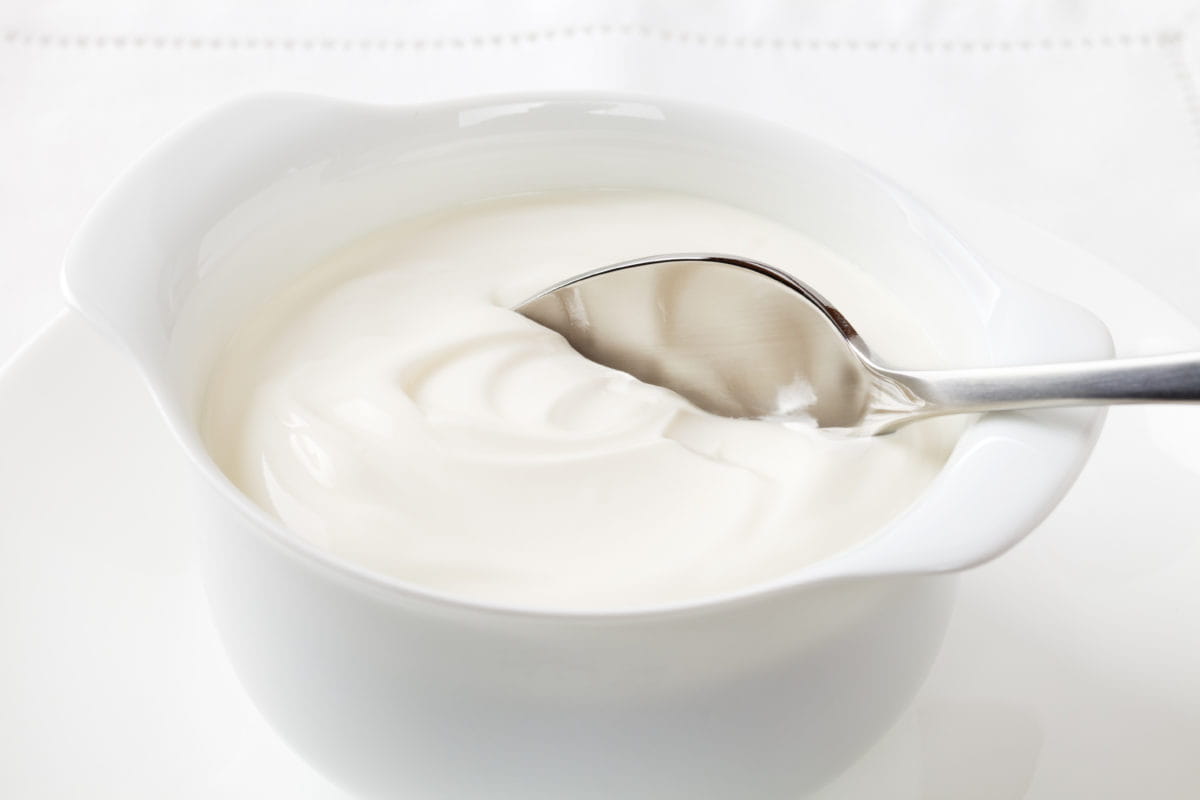
Probiotics & Prebiotics
Very few non-dairy yogurts have launched with Immunity or Probiotic claims in recent years but Food Dive reports that consumer awareness of probiotics has increased greatly over the past 10 years and that the market is expected to grow to $50 billion globally by 2020 from $32 billion in 2014. This interest in probiotics is seen as a driver behind increased sales of yogurt drinks. Sales increased 62% from 2011-2016, according to Food Dive. Califia Farms has launched a line of drinkable yogurts and attempts to distinguish this product from competition, saying, “The cultures grow as part of the almond and coconut base, delivering probiotics as part of the whole food, versus being fortified and added at the end of fermentation.”
“Increasingly, consumers are realizing the importance of probiotics because of their enormous digestive and immune health benefits.” -Greg Steltenpohl, CEO of Califia Farms
• Broken Coconut restaurant in NYC, features housemade, “probiotic-rich” dairy-free yogurt.
• Califia Farms Probiotic Drinkable Yogurt is a non-dairy yogurt drink with 10 billion live, active probiotics added to each cup. Flavors are Strawberry, Super Berry, Mango and Unsweetened Plain.
• The Coconut Cult Mango Cream Probiotic Coconut Yogurt comprises creamy coconut milk made from chopped, pureed coconut meat and water from organic Thai coconuts, and contains 400 billion highly active human strain probiotics per pint. It is described as powerfully probiotic.

Kids
While the development of dairy yogurt targeted at kids kicked off a wave of product innovation that took us through Greek yogurt, there are not many plant-based options for a younger audience. None of the 54 products launched in the US since 2014 carry a claim for children. As interest in the category grows, this is an area of whitespace for product developers looking for what’s next. Additionally, the Millennial parents of these potential yogurt-eaters are a potential audience for probiotic plant-based yogurts, in particular, as the are interested in probiotic foods and beverages, plant-based options and snacking.
Flavors
Non-dairy Yogurt Flavor
Of the 54 US products Mintel counts from Jan. 2014 to Feb. 2018, Unflavored/Plain is the most common flavor with nine appearances. Flavors are not typically combined with other flavors. The top US flavors are similar to global favorites, but with the addition of apricot and passionfruit to the list and the removal of coconut milk and pineapple. We see more differentiation when we compare to top dairy yogurt flavors, which are: Strawberry, Vanilla, Blueberry, Unflavored/Plain, Raspberry, Peach, Chocolate, Coconut, Cherry, Honey.
Product Spotlight: Ruby Rocket’s Stellar Strawberry Flavored Dessert: This non-dairy fruit and veggie blend is sold in portable tubes and positioned as a creamy alternative to dairy yogurt. Tagged as “Stellar Strawberry” flavor, the product also contains carrot, pear juice, beet, sweet potato, banana and coconut cream. There are 70 calories per serving and all sugar is from the fruit and vegetables only. The product retails in a 1-lb. pack containing eight portable 2-oz. units.
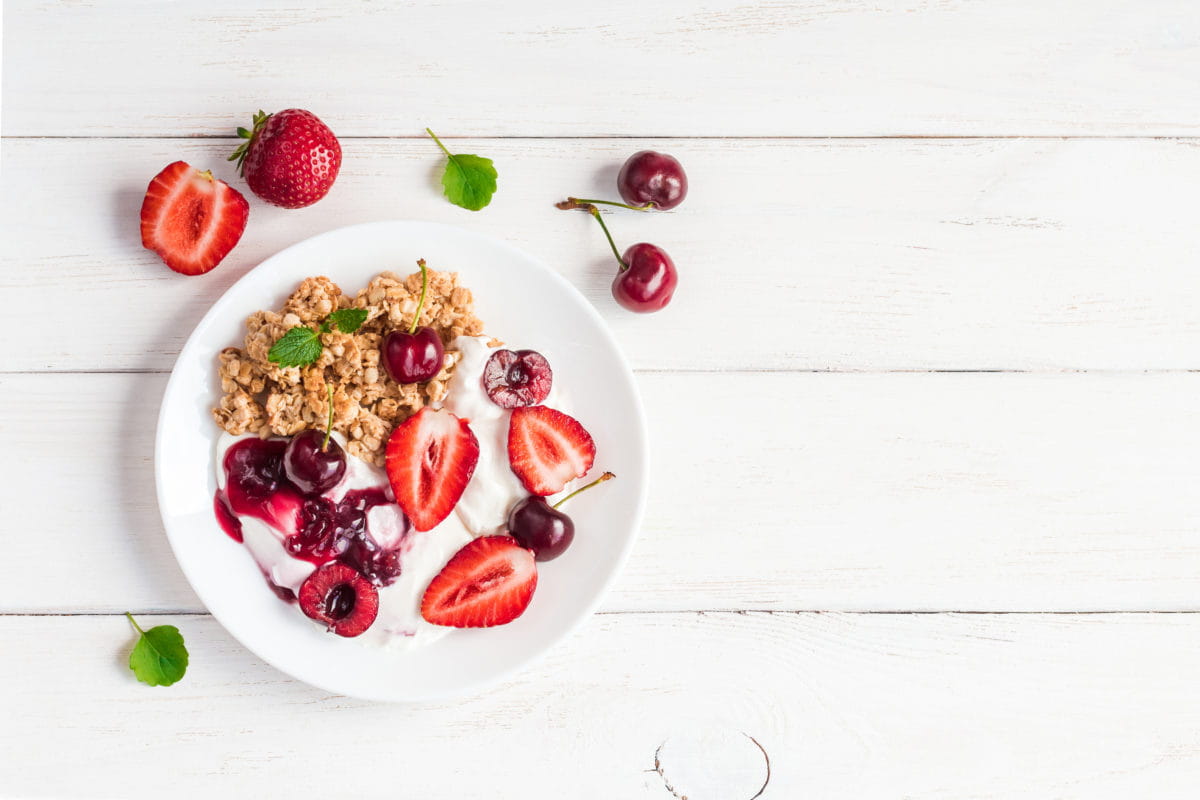
Top 10 Flavor Components
• Unflavoured/Plain
• Blueberry
• Strawberry
• Mango
• Vanilla
• Coconut
• Coconut Milk
• Peach
• Pineapple
• Raspberry
New Ingredients Appearing in Last 12 Months
• Lime Juice
• Passion Fruit Puree
• Pink Salt
• Blueberry Compote
• Pili Nut
• Plantain
The Coconut Collaborative Mango & Passionfruit Dairy-Free Yogurt Alternative is naturally flavored, is free from dairy, and is suitable vegans. The product is described as super thick and creamy. To help Southeast Asian farmers, the manufacturer is said to plant thousands of coconut trees that will regenerate soil and provide wildlife habitat and income for communities.
Ripple Maple Greek Yogurt Alternative contains 12g of plant-based protein, live active cultures and a thick, rich yogurt texture. It is 100% vegan, and is free from dairy, soy, nut, gluten and lactose.
The Takeaways
There's a gap when it comes to kids' non-dairy yogurt, and non-dairy yogurt overall with interesting flavor combinations. Brands like Lavva and Yooga are taking on the sugar problem in non-dairy yogurt, but the need persists. Probiotics is another way to create a stand-out product. In your product development, consider that yogurt consumers are looking for healthy options (elements such as increased protein, lowered sugar, organic ingredients). When they turn to plant-based products, these demands still go mostly unmet, providing whitespace for product development of healthy, plant-based yogurts with clean labels and, of course, great tasting, interesting flavor profiles. As always, taste is key. Whether you go for unique, out-of-the-box or tried-and-true, your non-dairy yogurt product has to taste great and have the right texture.
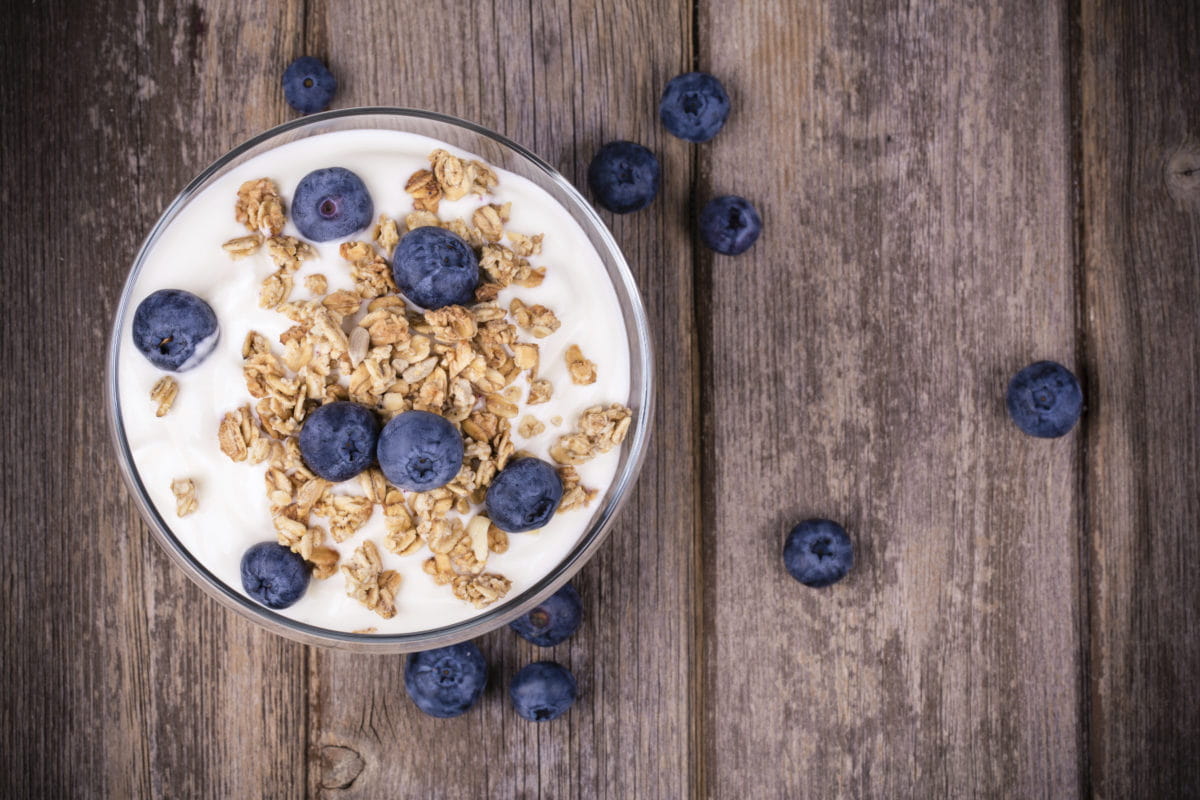
Click here for the full report!
You deserve more. Let's get started.
What does true partnership look like? You deserve a flavor partner ready to turn these trends into the tangible.
Let FONA’s market insight and research experts get to work for you. Translate these trends into bold new ideas for your brand. Increase market share and get to your “what’s next.” Our technical flavor and product development experts are also at your service to help meet the labeling and flavor profile needs for your products to capitalize on this consumer trend. Let’s mesh the complexities of flavor with your brand development, technical requirements and regulatory needs to deliver a complete taste solution.
From concept to manufacturing, we’re here for you — every step of the way. Contact our sales service department at 630.578.8600 to request a flavor sample or chat us up at www.mccormickfona.com/contact-mccormick-flavor-solutions/
Sources in full report.




